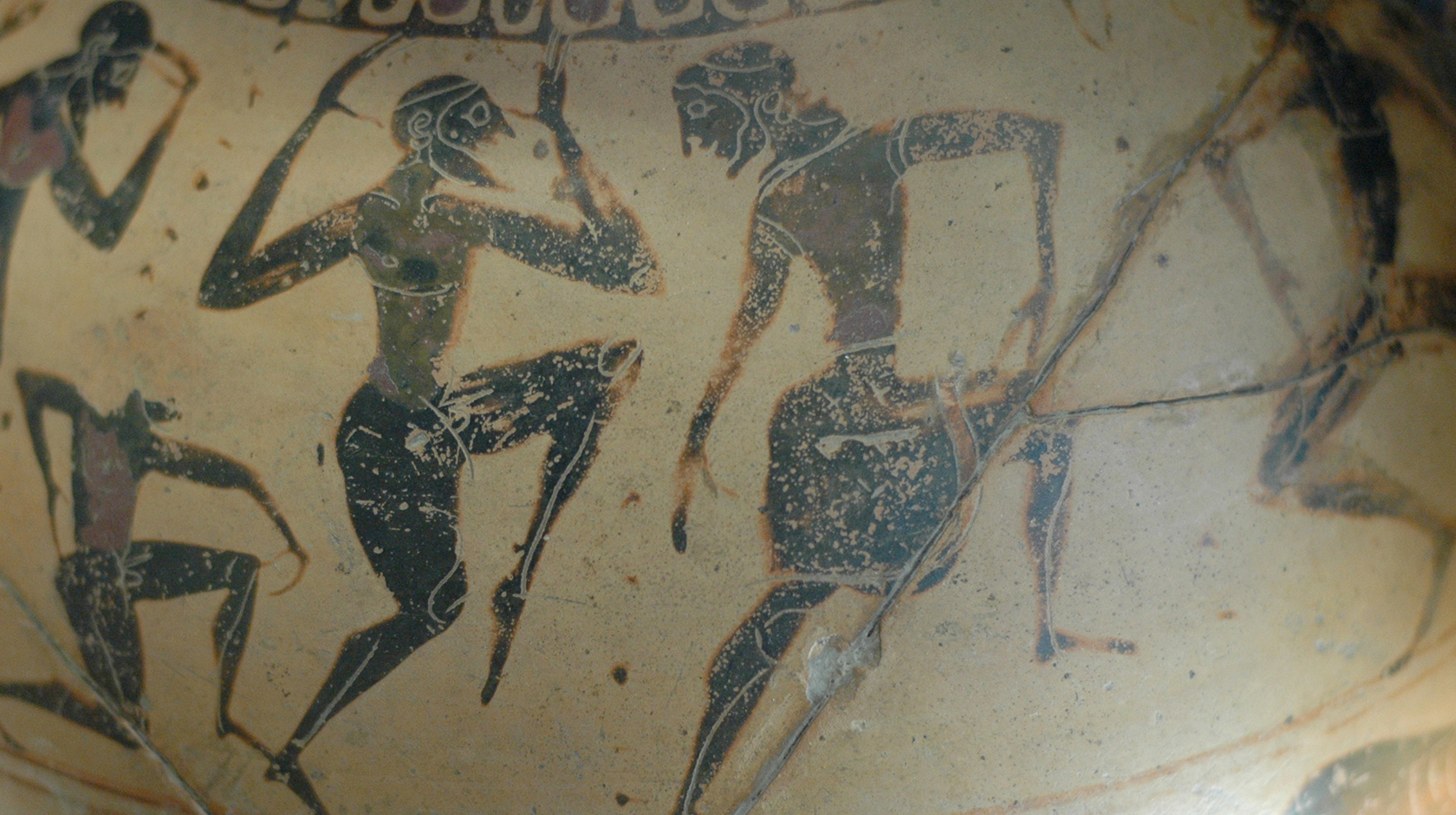Goat Songs in Ancient Greece

Goat Songs in Ancient Greece
Tragedy; In Turkish, we use the term "trajedi." It is not only a type of theater play, but we also use it to refer to situations such as pain, disaster, or destruction. For example, "Emine's life took a very tragic turn."
However, what is interesting is that the word tragedy (tragedya) has no connection, either directly or indirectly, to words like pain, disaster, or destruction.
Tragedy is derived from the Ancient Greek word “tragoidia,” which is a compound word. It consists of two words: “tragos” and “oidie.” "Tragos" means goat, and "oidie" (in its form in compound words, "oidia") means “song,” “melody,” etc. It is the origin of the contemporary term "ode." So, in this case, tragoidia (tragedy) literally means "Goat Songs."
These “goat songs” are fundamental to the existence of theater and are at its roots. In religious ceremonies held in honor of Dionysus, a chorus would dress in goat costumes and sing "dithyrambos," hymns dedicated to Dionysus.
Then, in the 6th century BC, a man named Thespis emerges. He adds an actor to this chorus, which had been singing dithyrambos in goat costumes. This first actor in history was Thespis himself. A dialogue is created between the actor and the chorus. Thus, theater is born and begins its journey. For this reason, Thespis is considered the creator of theater. Of course, Thespis does not stop there; he builds a theater stage in his cart and travels around nearby towns and villages to perform. In this way, he not only creates theater but also lays the foundations for "itinerant theater." The expression "Thespis's Cart" is also part of theater history. It is even said that some actors, depending on their acting ability, were called "thespian."
Unfortunately, what a great misfortune it is that none of Thespis’s plays have survived to this day. The oldest tragedy playwright whose full text has reached us is Aeschylus. Aeschylus, in addition to the actor Thespis introduced, adds another actor and raises the number of actors on stage to two. Later, Sophocles adds a third actor, making the number three. (These numbers refer to the number of actors present on stage simultaneously, not the total number of characters in the play.)
However, what is interesting is that the word tragedy (tragedya) has no connection, either directly or indirectly, to words like pain, disaster, or destruction.
Tragedy is derived from the Ancient Greek word “tragoidia,” which is a compound word. It consists of two words: “tragos” and “oidie.” "Tragos" means goat, and "oidie" (in its form in compound words, "oidia") means “song,” “melody,” etc. It is the origin of the contemporary term "ode." So, in this case, tragoidia (tragedy) literally means "Goat Songs."
These “goat songs” are fundamental to the existence of theater and are at its roots. In religious ceremonies held in honor of Dionysus, a chorus would dress in goat costumes and sing "dithyrambos," hymns dedicated to Dionysus.
Then, in the 6th century BC, a man named Thespis emerges. He adds an actor to this chorus, which had been singing dithyrambos in goat costumes. This first actor in history was Thespis himself. A dialogue is created between the actor and the chorus. Thus, theater is born and begins its journey. For this reason, Thespis is considered the creator of theater. Of course, Thespis does not stop there; he builds a theater stage in his cart and travels around nearby towns and villages to perform. In this way, he not only creates theater but also lays the foundations for "itinerant theater." The expression "Thespis's Cart" is also part of theater history. It is even said that some actors, depending on their acting ability, were called "thespian."
Unfortunately, what a great misfortune it is that none of Thespis’s plays have survived to this day. The oldest tragedy playwright whose full text has reached us is Aeschylus. Aeschylus, in addition to the actor Thespis introduced, adds another actor and raises the number of actors on stage to two. Later, Sophocles adds a third actor, making the number three. (These numbers refer to the number of actors present on stage simultaneously, not the total number of characters in the play.)
